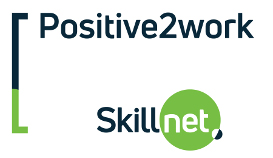Successfully Managing Remote Working
-
8th March 2021 - 9th March 2021
9:30 am - 12:30 pm
Course duration: Two days
Additional notes for course: 2 mornings
Venue: Virtual Online
Not a member? Find out if your company is eligible here
Aims and objectives
The aim of the training is to work on preparing managers to optimise the performance of their team in the remote working environment, developing key communication skills, relationship management techniques and practical tools and solutions for effectively operating in remote working arrangements.
The training will use reflection and self-development techniques to address the areas of communication, trust, culture wellbeing and individual differences in Remote Working and consider and reflect on key actions required to ensure successful management of remote working.
Who should attend
The training is aimed at new and existing managers of remote workers and those keen to explore remote work arrangements. The training is tailored to consider the needs of managers managing partly or fully remote employees, operating in partially or fully remote organisations.
Course content
- Introduction to remote work: Types, Prevalence, Benefits and Challenges.
- Culture and Remote Work: Examine and understand how culture supports or impedes the roll out of remote arrangements.
- Communication and Collaboration in Remote Work: Emphasis on role of communication, Focus on tips for communication remotely, stakeholder identification and management, Differences between Communication and Collaboration
- Psychological Safety in Remote Teams: Examining remote team formation, agility and psychological safety.
- Personality and Remote Working: Type theory and impact on communication, wellbeing, feedback etc. for Remote Working, Self-Reflection and strategy identification to deal with potential challenges.
- Trust: Role of trust, Iterative nature of trust and how trust can be intentionally fostered in Remote Working Relationships, expectations and responsibilities in remote working relationships.
- Tools: Types of tools used in Remote Working and how these can be harnessed effectively, including self-assessment of tools used, effectiveness and potential gaps.
- Performance Management: Examining best practice in delivering feedback and tracking performance in Remote Working Arrangements
- Well-being: Exploring boundary theory, time management, work environment and social needs and supports.
Skills learned
- Reflect on personal management and communication styles and how these impact on managing remote workers
- Learn how to support a collaborative remote working arrangement
- Develop tools for effective communication and collaboration with remote workers
- Develop skills in building trusting working relationships
- Explore well-being in the remote working context
- Reflect on and develop personalised action plans for building your own management capacity
